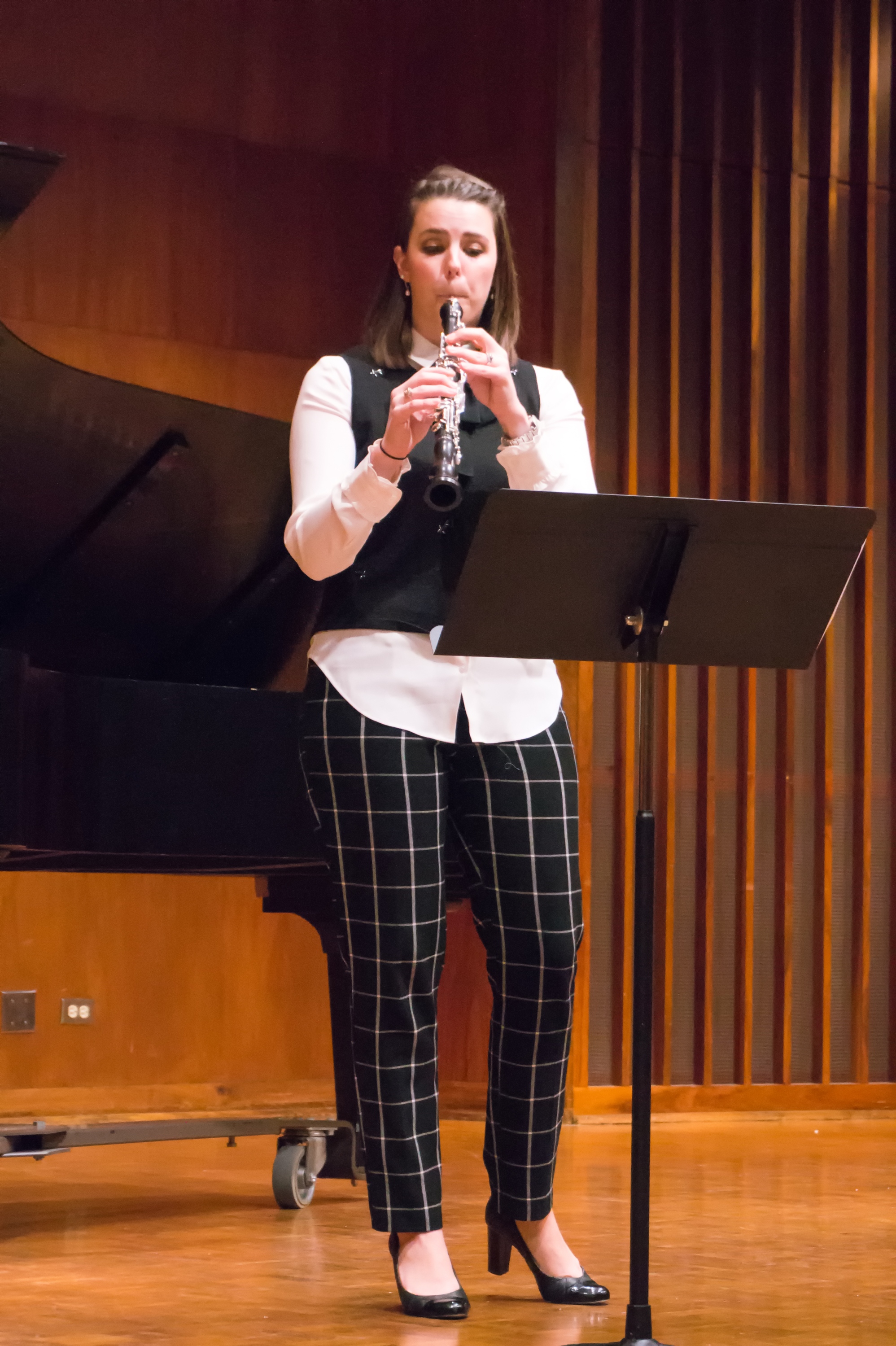Guest artist and lecturer Abby Yeakle Held performs in Harper Hall.
Photo by Taylor Blackson
On Sunday, Oct. 29, a guest lecture-recital was held in Harper Hall by Abby Yeakle Held, D.M.A., entitled “The Viennese Oboe and its Classical and Romantic Repertoire.” Yeakle Held performed a song on the Viennese oboe and a song on the French oboe, which is the predominant oboe worldwide right now. She then proceeded to lecture on the importance of the Viennese oboe and the possible implications of its decline in prevalence as an instrument.
This was a small event, comprised mostly of students and staff from Lawrence University’s Oboe Studio. As someone who knows absolutely nothing about the French oboe, let alone the Viennese oboe, I will readily admit that most of this lecture went over my head. Yeakle Held was wholly interactive with the audience, asking questions to Conservatory students about the sounds they were hearing and the differences between the two instruments. Inside jokes about the oboe were exchanged, and while I wish I could have been a part of this dialogue, it is undeniable that Yeakle Held was thoroughly intelligent and charming on the stage.
Professor of Music Howard Niblock sat in the front row and introduced Yeakle Held, describing the Viennese oboe as an “unusual creature.” Yeakle Held performed two songs: an August Klughardt piece on the French oboe, and a Franz Joseph Haydn piece on the Viennese oboe. After these performances, she asked the audience which type of oboe they preferred. Many of the students, who all primarily perform on the French oboe, were shocked to realize that they preferred the sounds of the Viennese oboe. The students even thought that they were somehow betraying their French oboe by feeling this way towards the Viennese oboe!
Yeakle Held spent a year in Vienna, Austria studying the Viennese oboe as a Fulbright Scholar. She exuded confidence as she described the history and importance of the instrument. Nowadays, the Viennese oboe is played exclusively in Vienna; Yeakle Held described this as a near atrocity. According to Yeakle Held, the Viennese oboe is vitally important for understanding certain time periods of music. In parts of the classical and romantic eras, the Viennese oboe was popular in many countries. Therefore, because many composers likely wrote their music for the Viennese oboe, it can be extremely helpful to know what intonations the composers would have intended the musicians to use.
The Viennese oboe experienced about two decades of dominance, and then underwent a swift and hard fall. The only person who knew how to make the Viennese oboe died and had not prepared an apprentice. The art of making this oboe was lost for a long time. Now, the instrument stays alive in Vienna because most auditions require their musicians to audition on the Viennese oboe. Yeakle Held stressed the importance of not letting the Viennese oboe die because it is so vital for period study, and it has taught her a lot about approaching classical and romantic repertoire. Despite not having any background in or knowledge about the oboe, because Yeakle Held communicated a passionate and compelling argument for the Viennese oboe, I have a newfound respect for this “unusual creature” of an instrument.

